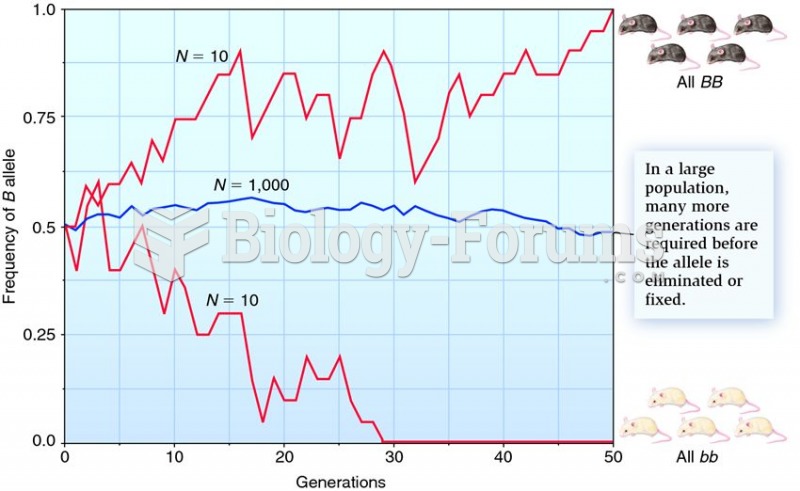|
|
|
You should not take more than 1,000 mg of vitamin E per day. Doses above this amount increase the risk of bleeding problems that can lead to a stroke.
Signs and symptoms that may signify an eye tumor include general blurred vision, bulging eye(s), double vision, a sensation of a foreign body in the eye(s), iris defects, limited ability to move the eyelid(s), limited ability to move the eye(s), pain or discomfort in or around the eyes or eyelids, red or pink eyes, white or cloud spots on the eye(s), colored spots on the eyelid(s), swelling around the eyes, swollen eyelid(s), and general vision loss.
Approximately 70% of expectant mothers report experiencing some symptoms of morning sickness during the first trimester of pregnancy.
Pope Sylvester II tried to introduce Arabic numbers into Europe between the years 999 and 1003, but their use did not catch on for a few more centuries, and Roman numerals continued to be the primary number system.
Human kidneys will clean about 1 million gallons of blood in an average lifetime.
 Use of fluorescent molecules by Lowenstein and colleagues to determine the size of gap-junction chan
Use of fluorescent molecules by Lowenstein and colleagues to determine the size of gap-junction chan
 The head of the jaguar is robust and the jaw extremely powerful. The size of jaguars tends to increa
The head of the jaguar is robust and the jaw extremely powerful. The size of jaguars tends to increa





